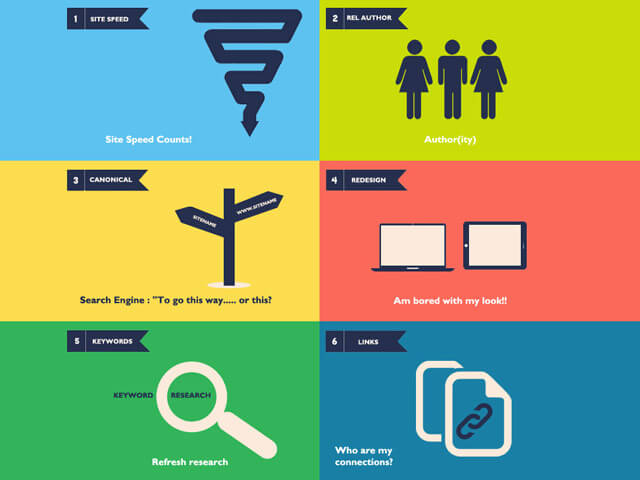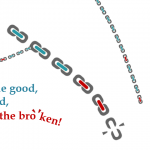So content is all we have been focusing on lately, have we?
Content sure has taken the center-stage in today’s SEO, given the demand of relevant and effective search result. Good content adds substantial value to the website’s performance on organic search rankings. However, to think of SEO as just publishing a whole lot of text and little else would be to ignore the vast network of other crucial activities involved that are equally important to secure your ranks. I figured I have been talking about content a bit too often myself, so here’s a quick heads-up on the key factors that you should be looking at closely to safeguard your website’s performance.
Because of this sudden focus on content in search engine optimization, enough has been said already about its importance and role. I would assume you are already working on it, and would skip elaborating on this point. But, it is not to say that it is any less important!
Check on Google how the link to your website appears when the search engine returns a result to one of your targeted keywords. Read the rich snippets – title, description, URL – does it sound alright? These are key to get you a higher click through rate. Check the page title, description (depending on the search query Google can extract a portion of your page content as the page description, but remember to revisit this part often to ensure it retains relevance to changing times and is compelling enough to invite a customer visit), and make the URL clutter free.
Site speed is one area you should be concerned about. Without getting into the debate on how much importance Google gives this component, just imagine a visitor stuck on a slow site that refuses to load promptly – you have lost the visitor! Sometimes you have to stop thinking about serving the search engine and think about your end visitors and their user experience!
I think I have said it before, and I will say it again – Google loves Google! With the Rel author tag you establish authorship of your content. Absolutely implement this – not just in your blog, but also on key information pages like index page, about us, solutions etc. Link the author to the contributor’s Google+ profile to get the benefits.
Schema Mark up is one way of further feeding the search engines with data about your page, to help it index your site more appropriately and return precise results. This can further the prospects of your website’s rankings.
Canonical instances of your page can harm your website in more than one way. It lead to duplicate content, as well as confuses your visitors with multiple instances of the same page and content. It also diminishes the page’s merit by distributing traffic to different pages. Be careful with this metric.
Often times, our site gets a beating not because there is a fault with the links or content, but because the search engines can crawl the complex navigation system. Worse, there are robots that you have unintentionally put in place that prevent search engines from crawling the significant pages of your site. If you see a stagnant ranking or a drop in numbers, you might want to include this point in your checklist.
Check the health of your inbound links. A detailed link analysis will give you the signals you need to act. After a point of time, the pages that lead to you may not be relevant, or the page may expire, or the domain may be taken over by a different business. So you need you check the links and take necessary action to dissociate from unhealthy, poor and malicious links.
Let’s take a case in point – you are following all the Google recommended guidelines for your website and still find your website is not ranking the way it should. What do you think has possibly gone wrong? Probably your monitoring the keywords! The ranks you check are against the keywords you select. Are you focusing on the right keywords for your website? If it has been long time, it is time you reviewed the organic (non-branded) keywords based on their search volume and relevance. After careful consideration, once you have selected the target keywords and related keyword group you want to focus on page-by-page, moderate the on-page attributes keeping these keywords in mind. Even your page content may need brief moderation to ensure you include the key terms within the page text and image attributes.
When did you launch the website? Have you ever considered remodeling the look of your website? The newbies in the business could be giving you a tough time. By the virtue of launching themselves in the Next Generation, they have the gift of newer technology and more advanced software to compete with the old horses. You better buck up, and take up the challenge. While retaining every bit of the old authority, just give it a makeover to look smarter and updated. And, you are back in the race! Besides, it is not just the look of the website; the newer lot of software is more SEO friendly, so you get the edge.
Finally, as they say, when you have taken care of the loose ends long ignored, spread the word! Use the social media signals to tell your friends, business associates, followers, customers and their friends about your website.










